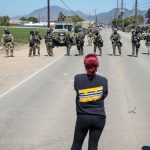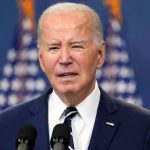Early voting is poised to get underway in several states this month. The Washington Examiner will take a closer look at the swing states, including voting rules you need to know and key differences from prior elections. Part 2 of Battleground Ballots will focus on what has changed in North Carolina, a critical battleground that Democrats believe could seal a general election victory for Vice President Kamala Harris.
North Carolina residents will start receiving voting materials for the 2024 election this week, with absentee ballots beginning to hit mailboxes on Sept. 6 in the critical swing state.
But a few legal challenges regarding the Tar Heel State’s voter registration and ID laws could prove to have a significant impact on whether the state swings red or blue in November.
Former President Donald Trump carried North Carolina in both the 2016 and 2020 general elections. It was notably the only battleground where Trump defeated President Joe Biden, by just over 1 percentage point.
The thin margin by which the state was decided in 2020 makes the legal challenges in the state, including a nearly 6-year-old lawsuit filed by the NAACP protesting North Carolina’s voter ID law, even more consequential to the 2024 election.
Another lawsuit filed by the Republican National Committee and the state Republican Party seeks to purge more than 200,000 voters from voter rolls ahead of the election, citing a failure from the state elections board to require identification to prove citizenship.
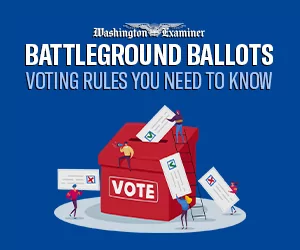
PART 1: HOW ARIZONA’S ELECTION WILL BE DIFFERENT THIS NOVEMBER AFTER YEARS OF SCRUTINY
Democrats believe the Tar Heel State will help lift Vice President Kamala Harris to the presidency this November. Harris has visited North Carolina just once since entering the race in July, holding a campaign rally in Raleigh in late August where she outlined the broad strokes of her economic platform, but she has traveled to the state eight times in 2024 in total, on top of more than a dozen trips while serving as Biden’s vice president.
Sensing the heat, the Trump team has also stepped up its campaigning in North Carolina since Harris became the Democratic nominee. And later this week, North Carolina will become the first swing state in the country to begin voting when it sends out mail-in absentee ballots on Friday.
Here’s what you should know about North Carolina’s legal battles and voting rules ahead of November.
State of the race
North Carolina, like the other six battlegrounds, remains incredibly close but has slid to the left since Democrats swapped out Harris for Biden in July.
Cook Political Report lists North Carolina as a toss-up, the Hill’s polling aggregate shows Harris and Trump tied at 48.3%, and the RealClearPolitics polling average gave Trump less than a 1-point advantage over Harris in the state.
Morgan Jackson, a veteran Democratic operative based in North Carolina and a former top aide to Gov. Roy Cooper (D-NC), described the situation as “an absolute jump ball” and said both parties are laser-focused on winning the state.
“You can see it and you can feel it on the ground. The energy enthusiasm is palatable, especially for Democrats … awakened by [Harris] on the ballot,” he told the Washington Examiner. “We’ve seen a couple of different visits from Trump, and he hadn’t been here for months and all of a sudden he’s here twice in two weeks and scheduling more visits. They know how important North Carolina is to their electoral math, that if North Carolina goes Democratic, there’s not a path for Donald Trump to be president.”
Legal challenges pending in court
Despite efforts to increase election security since the last general election, the North Carolina State Board of Elections has been slapped with six lawsuits over the past 40 days.
Three of those lawsuits involve independent candidate Robert F. Kennedy Jr., who dropped his White House bid in August and endorsed Trump. The first lawsuit involves Kennedy’s initial effort to be included on the ballot. The second is a lawsuit filed by the North Carolina Democratic Party looking to reverse his admittance to the ballot, and the third involves Kennedy’s subsequent effort to be removed from the ballot.
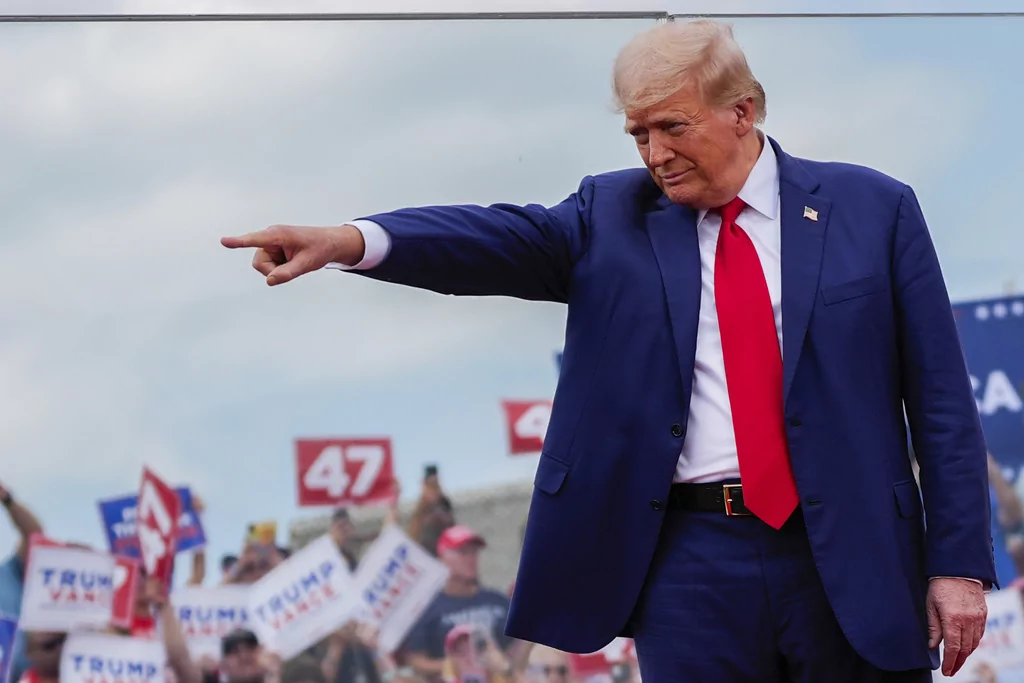
However, Republican Party officials have also filed two suits against the NCSBE. The first lawsuit, filed by the Republican National Committee and the state party on Aug. 22, claims that the NCSBE has failed to “clean up” voter rolls by not checking jury questionnaires to identify noncitizens and remove them from the voter rolls.
The second, filed by the RNC and the North Carolina Republican Party on Aug. 23, seeks to purge more than 200,000 voters from voter rolls ahead of the election and accuses the NCSBE of not taking proper steps to prevent noncitizens from voting in elections, and it has yet to be resolved.
“The NCSBE has once again failed in its mandate to keep non-citizens off the voter rolls, fueling distrust and jeopardizing our elections. We are committed to the basic principle — and commonsense law — that only Americans decide American elections,” RNC Chairman Michael Whatley said in a statement. “Deliberately failing to follow the law, right before our country’s most important election, is inexcusable.”
“This state board continually has problems ensuring voter rolls only have verified citizens,” NCGOP Chairman Jason Simmons added.
Jackson, the veteran Democratic operative, told the Washington Examiner that the GOP lawsuits and Trump’s increased focus on the state show that Republicans are “running scared.”
“This is going to be one of the closest states in the nation,” he claimed. “This is a race that’s going to come down to a mix of two things. It’s going to be a mix of where the national environment is 60 days from now, and it’s going to be a mix of what the campaigns have done on the margins to move a half a point, a quarter of a point in different ways. That’s how you win North Carolina.”
Meanwhile, a nearly 6-year-old lawsuit filed by the NAACP protesting North Carolina’s voter ID law is still up in the air.
A long-delayed, nonjury trial took place back in May of this year, and the district court has yet to deliver a decision.
Key differences compared to 2020
Even as voters await the court’s decisions on the state’s voter ID law, North Carolina has instituted the requirement.
In-person voters must present an acceptable form of photo identification to cast ballots, including a state driver’s license, a U.S. passport, a North Carolina voter photo ID card, an approved college or university student ID, a state or local government or charter school employee ID card, a military or veterans ID card, a tribal enrollment ID card, or a state or federal public assistance program ID card with photo.
Voters can still choose to vote without providing an approved form of identification by filling out a provisional ballot, but they must then fill out an ID exception form or later return to the county board of elections office and show proof of ID prior to votes being counted. North Carolina has also tightened rules around the acceptance of mail-in ballots and vote counting.
Mail-in ballots must be received by 7:30 p.m. on Nov. 5, Election Day, and state officials will not begin counting votes until polls close at 7:30 p.m. on Election Day.
Who’s on the ballot in North Carolina
In addition to Harris and Trump, North Carolina voters have five other presidential candidates to choose from: Constitution Party candidate Randall Terry, Green Party candidate Jill Stein, Justice for All Party candidate Cornel West, Libertarian Party nominee Chase Oliver, and independent Robert F. Kennedy Jr., who filed under the We the People Party.
Kennedy ended his White House campaign in late August and has since endorsed Trump. Prior to dropping out, he had stretched to appear on as many state ballots as possible and is now seeking to undo that work.
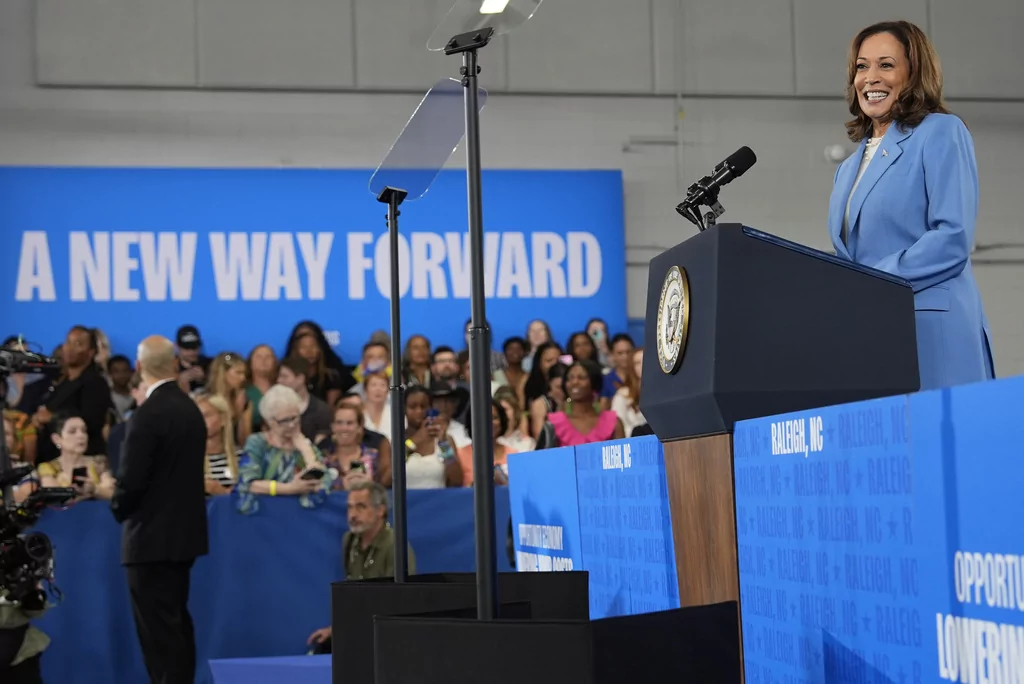
His initial request to be removed from the ballot in North Carolina was struck down by the NCSBE, and Kennedy has subsequently filed a lawsuit claiming the NCSBE is violating not only his constitutional rights but also state election law.
NCSBE Director Karen Brinson Bell said last Thursday that Kennedy’s request could not be fulfilled because the state has already printed more than 2 million ballots in 67 of the 100 counties and does not have the time or money to restart that process ahead of Sept. 6.
“When we talk about printing a ballot, we are not talking about … pressing ‘copy’ on a Xerox machine,” she said in a statement. “This is a much more complex and layered process.”
When does voting begin and end? Who can vote?
North Carolina county boards of elections have already been accepting requests for absentee voting, and those ballots will begin being sent to eligible voters this Friday, Sept. 6. The deadline to request an absentee ballot is Oct. 29 at 5 p.m.
The deadline to register to vote in North Carolina is Oct. 11 at 5 p.m., and the state board of elections lists clear requirements for who is eligible. To vote in North Carolina, voters must fulfill all of the following requirements: U.S. citizen, live in the county you are registering to vote in for at least 30 days prior to Election Day, at least 18 years old by Election Day, and not be serving a felony sentence, including probation, parole, or any form of post-release supervision.
North Carolina will begin in-person early voting on Oct. 17, and it will run until Nov. 2 at 3 p.m.
The polls close on Election Day at 7:30 p.m. on Nov. 5, the same deadline to return mail-in ballots. Both in-person voters and absentee voters in all 100 North Carolina counties use paper ballots, which the NCSBE claims will produce “a paper trail which can be easily audited or recounted.”
How are poll watchers selected and votes verified?
North Carolina state officials have taken steps to limit outside interference in elections. Under state law, no voting machine can be connected to the internet or contain a modem or modem chip. The “county boards of elections conduct logic and accuracy tests on every voting machine that will be used in the election to ensure proper coding of ballots and counting of votes for every contest on the ballot,” according to the NCSBE.
Furthermore, county and state party executives and independent presidential campaigns are allowed to select poll watchers, or observers as they’re referred to in North Carolina, to monitor the process. County party chairs may select up to two people to observe at each county polling location, in addition to 10 people who may observe at any polling location in the county. State party chairs are allowed to appoint up to 100 observers who may observe at any polling location in the state. Independent campaigns may also select up to two people to observe at each state polling location. Every observer must be a registered North Carolina voter.
CLICK HERE TO READ MORE FROM THE WASHINGTON EXAMINER
At the polling centers themselves, votes are counted using ballot scanners or tabulators, which after being fed a paper ballot record voters’ selections on both a paper results tape and a USB stick.
And once the polls close on Election Day, the NCSBE will begin a process called “canvassing,” which will calculate the final vote tallies and include multiple audits for voter fraud. During this process, the NCSBE will also investigate provisional ballots submitted by voters who did not show approved forms of identification to determine if they are indeed eligible to vote.
There is no immediate deadline for counting and verifying votes, and the NCSBE says it will check every single vote cast in the 2024 election. Once the NCSBE concludes the canvassing process, it will transmit the results to the state secretary of state, who will in turn notify the governor. In this case, Cooper will then issue a proclamation naming the state’s electors, who will meet on Dec. 17 in the North Carolina State Capitol in Raleigh to certify the votes.


